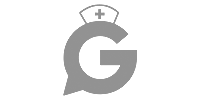Preparing for the NCLEX exam can be a daunting task, especially when it comes to mastering medication administration. This comprehensive guide will provide you with the essential knowledge needed to understand medication names, classes, mechanisms of action, indications, and side effects. By the end of this article, you'll be equipped with the information necessary to tackle medication-related questions on the NCLEX with confidence.
Understanding Medication Names
Medications can be identified by their generic and brand names. The generic name is the standard name of the drug, while the brand name is the trademarked name given by the manufacturer. For example, ibuprofen is the generic name, while Advil and Motrin are brand names. Familiarizing yourself with both names is crucial for the NCLEX, as questions may refer to either.
Tips for Remembering Medication Names
- Flashcards: Create flashcards with the generic name on one side and the brand name on the other.
- Mnemonics: Develop mnemonic devices to help remember complex names.
- Repetition: Regularly review medication names to reinforce memory.
Medication Classes
Medications are grouped into classes based on their similar chemical structures, mechanisms of action, or therapeutic effects. Understanding these classes is vital for predicting the effects and side effects of drugs.
Common Medication Classes
- Antibiotics: Used to treat bacterial infections. Examples include penicillins and cephalosporins.
- Antihypertensives: Used to lower blood pressure. Includes ACE inhibitors, beta-blockers, and diuretics.
- Analgesics: Used to relieve pain. Includes opioids and non-opioid analgesics like NSAIDs.
- Antidepressants: Used to treat depression. Includes SSRIs, SNRIs, and tricyclic antidepressants.
- Antidiabetics: Used to manage diabetes. Includes insulin and oral hypoglycemics.
💡 Struggling to Remember Nursing Content?
Check out our 25 Nursing Mnemonics that make complex topics stick—perfect for NCLEX prep!
Mechanism of Action
The mechanism of action (MOA) describes how a drug produces its effects in the body. Understanding the MOA is crucial for predicting therapeutic effects and potential side effects.
Examples of Mechanisms of Action
- Beta-Blockers: Block beta-adrenergic receptors, reducing heart rate and blood pressure.
- ACE Inhibitors: Inhibit the angiotensin-converting enzyme, leading to vasodilation and decreased blood pressure.
- NSAIDs: Inhibit cyclooxygenase enzymes, reducing inflammation and pain.
🥇Voted #1 Nursing Study Tool.
Personalized AI Tutor + Instant Answers to All Your Questions. 100% Money Back Guarantee!
Indications
Indications refer to the medical conditions or symptoms for which a medication is prescribed. Knowing the indications helps you understand why a medication is used and anticipate its effects.
Common Indications
- Antibiotics: Indicated for bacterial infections like pneumonia or urinary tract infections.
- Antihypertensives: Indicated for hypertension and heart failure.
- Analgesics: Indicated for pain relief in conditions like arthritis or post-surgical pain.
Side Effects
Side effects are unintended effects that occur in addition to the desired therapeutic effects. Being aware of common side effects is essential for patient safety and effective nursing care.
Common Side Effects
- Antibiotics: May cause gastrointestinal upset, allergic reactions, or yeast infections.
- Antihypertensives: May cause dizziness, fatigue, or electrolyte imbalances.
- Analgesics: Opioids may cause constipation, respiratory depression, or sedation.
Strategies for NCLEX Success
- Practice Questions: Regularly practice NCLEX-style questions related to medication administration to reinforce your knowledge.
- Study Groups: Join study groups to discuss and review medications with peers.
- Simulation Labs: Participate in simulation labs to gain hands-on experience with medication administration.
- NCLEX Review Courses: Enroll in NCLEX review courses that focus on pharmacology and medication administration.
💊 Understanding the various medication administration routes is also crucial for safe nursing practice.
Conclusion
Mastering medication administration is a critical component of NCLEX preparation. By understanding medication names, classes, mechanisms of action, indications, and side effects, you will be well-prepared to answer medication-related questions on the exam. Utilize the strategies outlined in this guide to enhance your study efforts and increase your chances of NCLEX success. Remember, consistent practice and a thorough understanding of pharmacology are key to becoming a competent and confident nurse.






